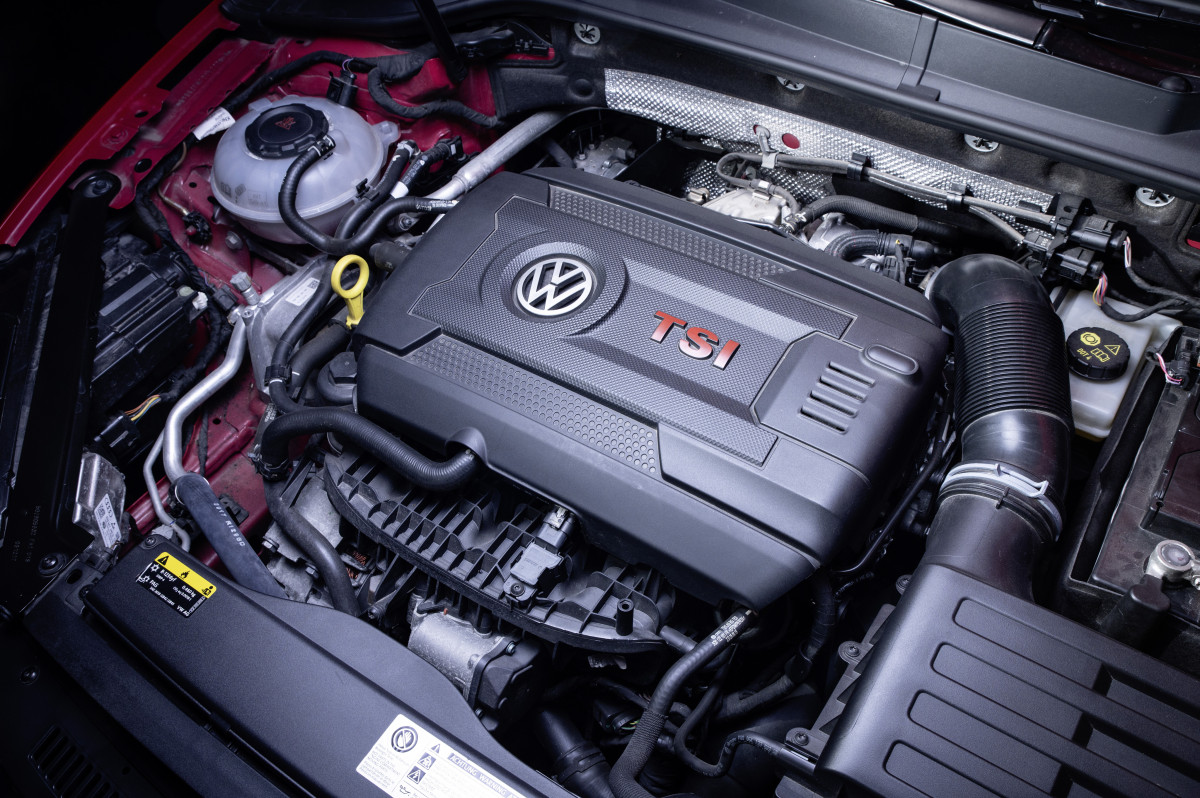German car industry calls for reversal of EU 2035 combustion engine ban
In the draft of an unpublished 10 point plan for climate-neutral mobility, which has been seen by Table Media and Politico, Germany’s car industry has demanded that emissions from new cars should not have to fall to zero by 2035, but instead only be reduced by 90 percent.
The changes would mean that “a limited number of new combustion engines can still be registered after 2035,” said the head of the VDA lobby group, Hildegard Müller, to POLITICO. Additional emissions could be compensated for by “more ambitious targets for renewable fuels,” she added.
Chancellor Friedrich Merz’s conservatives called for a reversal of the ban prior to this year’s federal election in Germany, but the policy did not make it into the coalition agreement his party made with the Social Democrats (SPD).
The ban on the sale of new combustion engine cars from 2035 onwards is EU law and cannot be reversed single-handedly by Germany. However, other member state governments have also said they want to lift the ban. The European Parliament’s centre-right European People’s Party (EPP), to which Merz’s conservatives belong, have also pushed to reverse it.
Many car industry experts have said the battle over the 2035 combustion engine ban is largely symbolic. It appears unlikely that many consumers would opt for a combustion engine car in ten years’ time, given recent technological advancements and price reductions for electric cars. However, they warn it could slow the unavoidable shift to electric cars, by sowing doubts among consumers.
The VDA comprises not only Germany’s carmaking groups VW, Mercedes, and BMW, but also many companies from the country’s large supplier industry, many of which specialise in combustion engine technology, and have few options to survive in a purely electric car market.
Criticism from Social Democrats and clean mobility experts
The SPD signalled they would resist the adoption of this position by the government. Tiemo Wölken, the party's environmental policy spokesperson in the EU Parliament, told Table Media that the proposals in the VDA paper would be “taking an axe to any planning and investment security for companies.”
Environmental think tank Agora Verkehrswende warned that the adoption of the draft proposals would “lead to a considerable slowdown in the electrification process.” This would put “climate targets and the long-term competitiveness of German industry at risk,” the think tank’s senior associate Carl-Friedrich Elmer told Table Media.
Clean mobility NGO Transport & Environment (T&E) warned the VDA plans could result in avoidable emissions of 500 to 1,400 million tonnes of CO2 emissions, if implemented. “The industry's plan is not a serious proposal, but a ploy to make a later weakening of the EU fleet limits appear to be a compromise,” T&E said. The campaign organisation added that the proposals would cement China's lead in electric vehicles and therefore endanger thousands of jobs in Europe.
VDA wants to keep the “development and production” of combustion engines in Europe
The VDA’s draft paper calls for softening interim fleet emission targets, as well as allowing the registration of certain long-range plug-in hybrids after 2035. The association justified its call for more technological open-mindedness with the poor e-car sales figures from last year.
The VDA paper states that “in many European countries, there is a lack of charging points, modern electricity grids and purchase incentives like tax incentives,” reported Politico. The association added that demand for e-cars remains “well below what would be necessary to achieve climate targets”.
“The end of the combustion engine cannot be realised in this way; we need to take an honest look at the realities and framework conditions,” the VDA argued. It added that fleet limits should be adjusted so the “development and production of combustion engines – in which we are technological leaders – could be kept in Europe."
The leader of energy industry lobby group BDEW, Kerstin Andreae earlier this week said that Germany's EV charging infrastructure is already “very well developed” and currently primarily lacks the vehicles to make use of it. She added that the country's transport sector urgently needs 'effective incentives' to reduce CO₂ emissions and therefore welcomed the government's announcement to allow tax write-offs for new company EVs of up to 75 percent of the purchasing price. The measure is part of a broader policy package to revive economic growth in the country and to make progress in the sluggish roll-out of electric cars.


